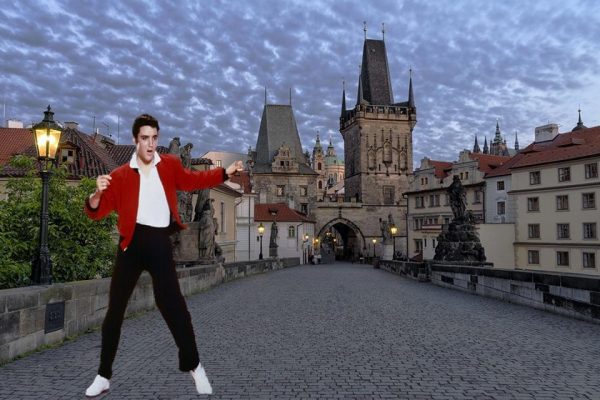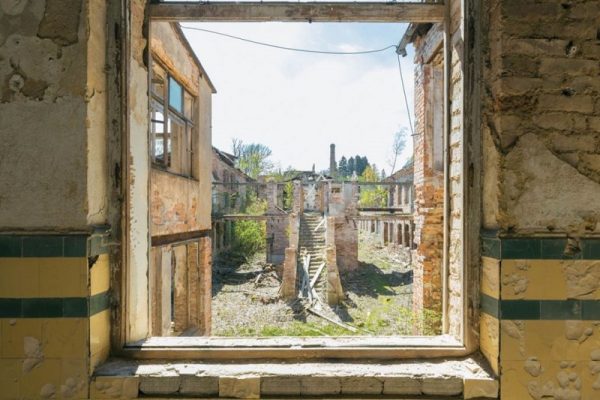It is quite rare to view a live recording of a truly legendary performance, yet I was blessed to do so a few years ago. In a documentary about Mstislav Rostropovich, the genius Russian cellist, I saw such a performance, the night a Russian cello wept for Czechs. It was the 1968 Proms season and he performed Antonín Dvořák’s Cello Concerto in B minor on August 21, 1968 – the very day that the Soviet tanks rolled into Prague.
I suggest you scroll down to the video and push play with your speakers on high, then scroll back to continue reading this post.
Still taking in all of the photographs, videos and films from the Soviet invasion of Czechoslovakia in 1968, I was reminded of this performance…
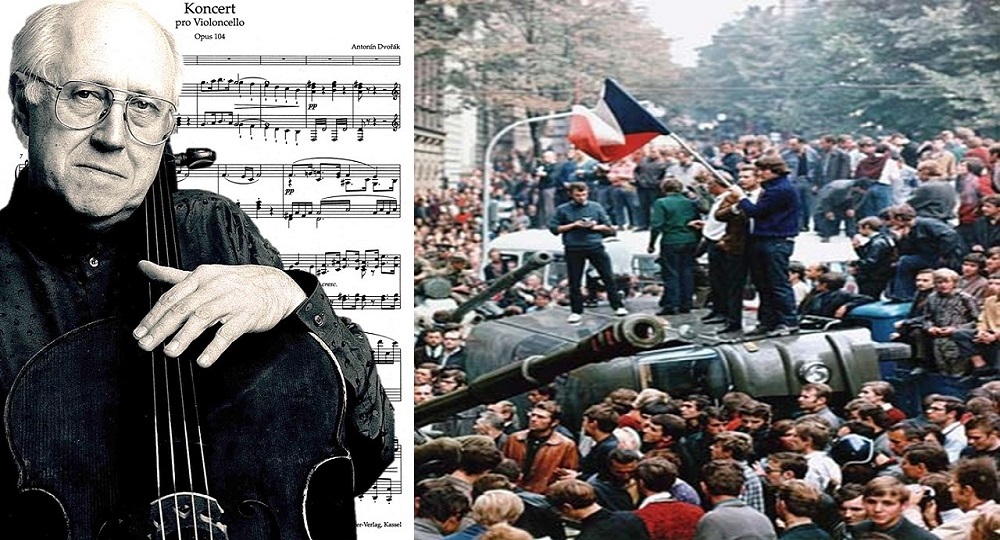
This specific Proms* concert was at the center of much attention because of the accompaniment by the Soviet State Symphony Orchestra and the Soviet conductor Evgeny Svetlanov. Outside the Royal Albert Hall, protesters were shouting and holding up signs and banners denouncing the Soviet invasion of Czechoslovakia. They made their way indoors as well.
(*The Proms is an eight-week summer season of daily orchestral classical music concerts and other events held annually, predominantly in the Royal Albert Hall in central London. The Proms were founded in 1895, and are now organised and broadcast by the BBC. This performance was Prom 30 of the 1968 season.)
Twist of fate…
Yes, it was a strange twist of fate that Russian cellist, Rostropovich, was playing the Dvorak Cello Concerto – After all, this is one of the most intensely nostalgic and nationalistic Czech works in the repertoire. This is precisely what made the occasion even more significant. For this reason, and for his incredible performance and solidarity, I believe this is one of the most important musical performances of the second half of the century – if not the whole of the century.
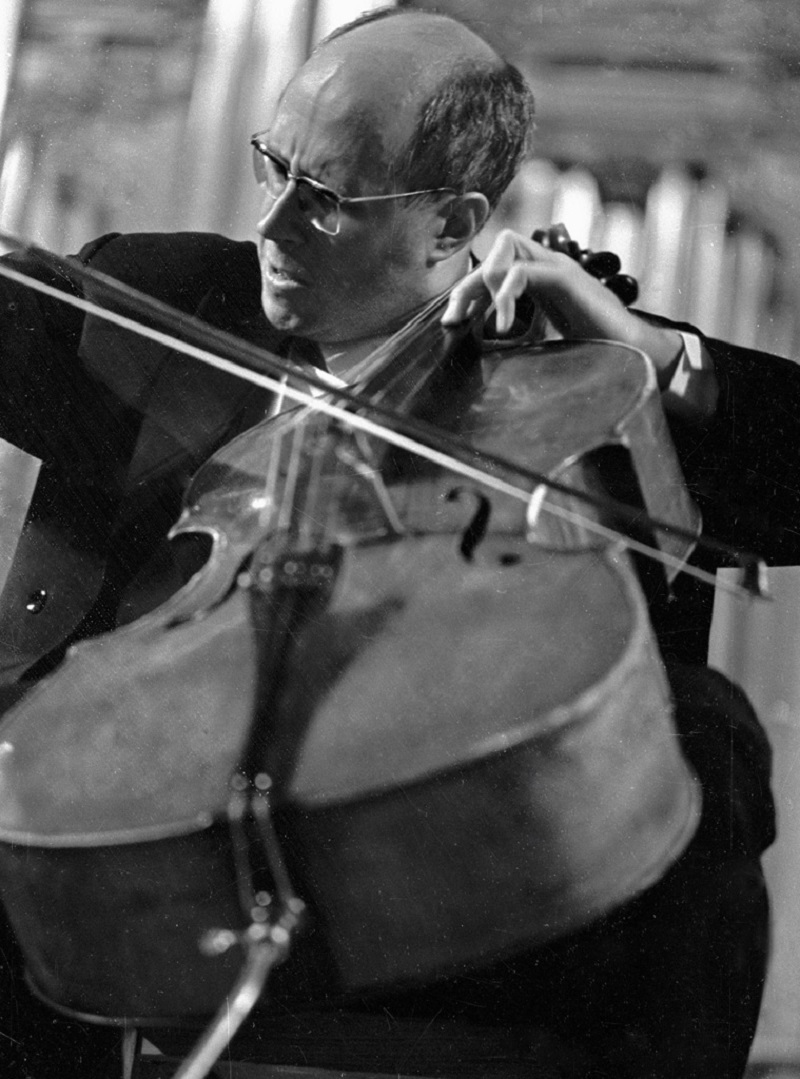
During this performance, Antonín Dvořák’s Cello Concerto in B minor immediately became the unlikely scene of a worldwide protest for the musical world against the Warsaw Pact invasion of Czechoslovakia.
Why? Because a half a million Warsaw Pact troops had poured into Czechoslovakia, the land of Antonín Dvořák’s birth, to crush a remarkable flowering of liberal socialism which, in Moscow’s eyes, could not be allowed continue. For months, under the leadership of Alexandr Dubcek, Prague had been reforming industry and freedom of speech. The Soviet tanks rolling into Czech cities signaled the end of Moscow’s patience.
The audience in the theatre began heckling as soon as the orchestra took to the stage. “Go home!” someone shouted. “Russians out!” yelled another. By the end of the evening, despite the musical performance, shouts of “Russian murderers!” could still be heard…
Tears were streaming down his face…
However, Russian cellist Rostropovich held the center of attention and attendees began to notice that he was playing the entire piece with tears streaming down his face. He had such a great love of Prague and all the Czech people. It was there that we won his first ever musical competition and he frequently performed concerts there.
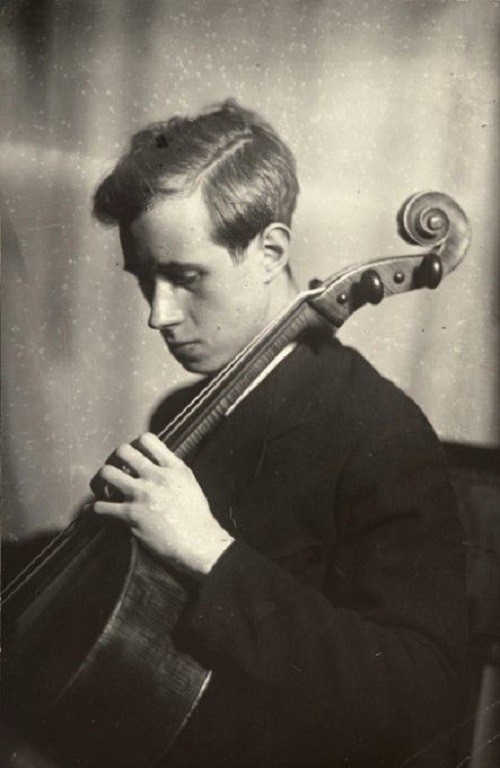
Weeping as he played, he later recalled that he imagined Czechs being killed through his tears. His playing was so emotional, filled with such sadness and anger at what was happening in Prague. After all, this was also the city where he had met his wife. To audience goers who recalled it later, it felt more like an apology than a piece of music. At the close of his performance, he held the score high overhead as a shared gesture of solidarity for the Czech people.
You can listen to a 30 minute audio where Paul Gambaccini recalls that evening in 1968, when Russian tanks entered Prague. Click here to listen to the audio.
Can you imagine what a nightmare for the cellist it must have been? Yet Rostropovich proceeded to give a performance of such seething intensity that no one could have left the hall with any doubt about his feelings towards the invasion.
Rostropovich made four recordings of this concerto in his lifetime, this is the version which is the most powerful and yet the most sorrowful. Perhaps Dvorak’s greatest achievement, this work has everything a human being can express and feel and dream.
Russian Cellist weeps for Czechs
From the below video description: On Aug. 21, 1968, Soviet tanks rolled into Czechoslovakia to crush the Prague Spring. This same day saw the Soviet State Symphony Orchestra’s Proms debut, with Rostropovich scheduled to perform Antonin Dvorak’s Cello Concerto, an ironic coinciding of events. A skirmish ran through the audience, which finally settled down with shouts of “shut up” out-yelling calls for the concert to be cancelled. Rostropovich performed with tears streaming down his cheeks as a terrified Vishnevskaya hid in her box. The performance burns with Rostropovich’s impassioned playing – an unforgettable evening when art coincided with human events to create one of history’s momentous theatrical occasions.
Rostropovich literally made the cello sing for all the Russian people in sympathy with the Czechs. Because the majority of the Russian people were also familiar with the Communist boots of the Soviets.
Do you hear the roar at the end of the video? I cannot even begin to imagine how it must have felt to be there!
Rostropovich may have been Russian, but he was against Soviets and communists. He is considered to be one of the greatest cellists of the 20th century and was internationally recognized as a staunch advocate of human rights, and was awarded the 1974 Award of the International League of Human Rights.
Rostropovich fought for art without borders, freedom of speech, and democratic values, resulting in harassment from the Soviet regime. An early example was in 1948, when he was a student at the Moscow Conservatory. In response to the February 10, 1948 decree on so-called ‘formalist’ composers, his teacher Dmitri Shostakovich was dismissed from his professorships in Leningrad and Moscow; the 21-year-old Rostropovich quit the conservatory, dropping out in protest.
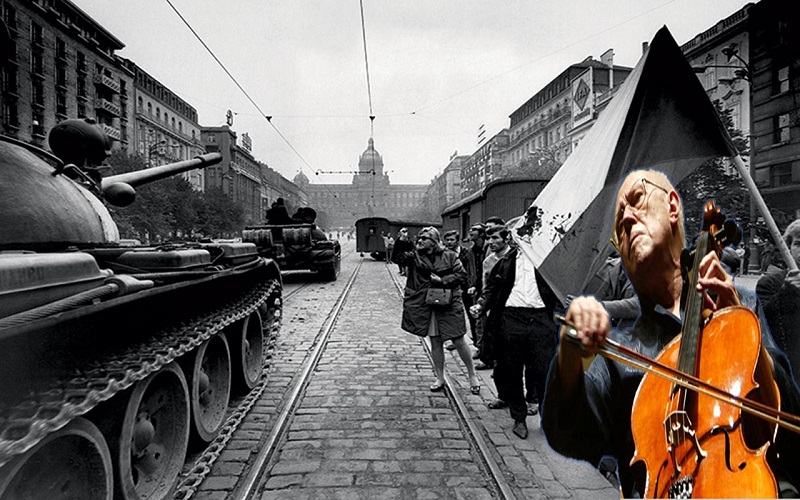
In 1970, Rostropovich sheltered Aleksandr Solzhenitsyn, who otherwise would have had nowhere to go, in his own home. His friendship with Solzhenitsyn and his support for dissidents led to official disgrace in the early 1970s. As a result, Rostropovich was restricted from foreign touring, as was his wife, soprano Galina Vishnevskaya, and his appearances performing in Moscow were curtailed, as increasingly were his appearances in such major cities as Leningrad and Kiev.
Rostropovich left the Soviet Union in 1974 with his wife and children and settled in the United States. He was banned from touring his homeland with foreign orchestras and in 1977 the Soviet leadership instructed musicians from the Soviet bloc not to take part in an international competition he had organised.
In 1978 Rostropovich was deprived of his Soviet citizenship because of his public opposition to the Soviet Union’s restriction of cultural freedom. He would not return to the Soviet Union until 1990.
You may also wish to read about Rostropovich at the Berlin Wall in 1989, and about his “harmonious” relationship with his wife, Russian soprano Galina Vishnevskaya.
* * * * *
Thank you in advance for your support…
You could spend hours, days, weeks, and months finding some of this information. On this website, we curate the best of what we find for you and place it easily and conveniently into one place. Please take a moment today to recognize our efforts and make a donation towards the operational costs of this site – your support keeps the site alive and keeps us searching for the best of our heritage to bring to you.
Remember, we rely solely on your donations to keep the project going.
We appreciate you more than you know!
If you have not already subscribed to get TresBohemes.com delivered to your inbox, please use the form below now so you never miss another post.





